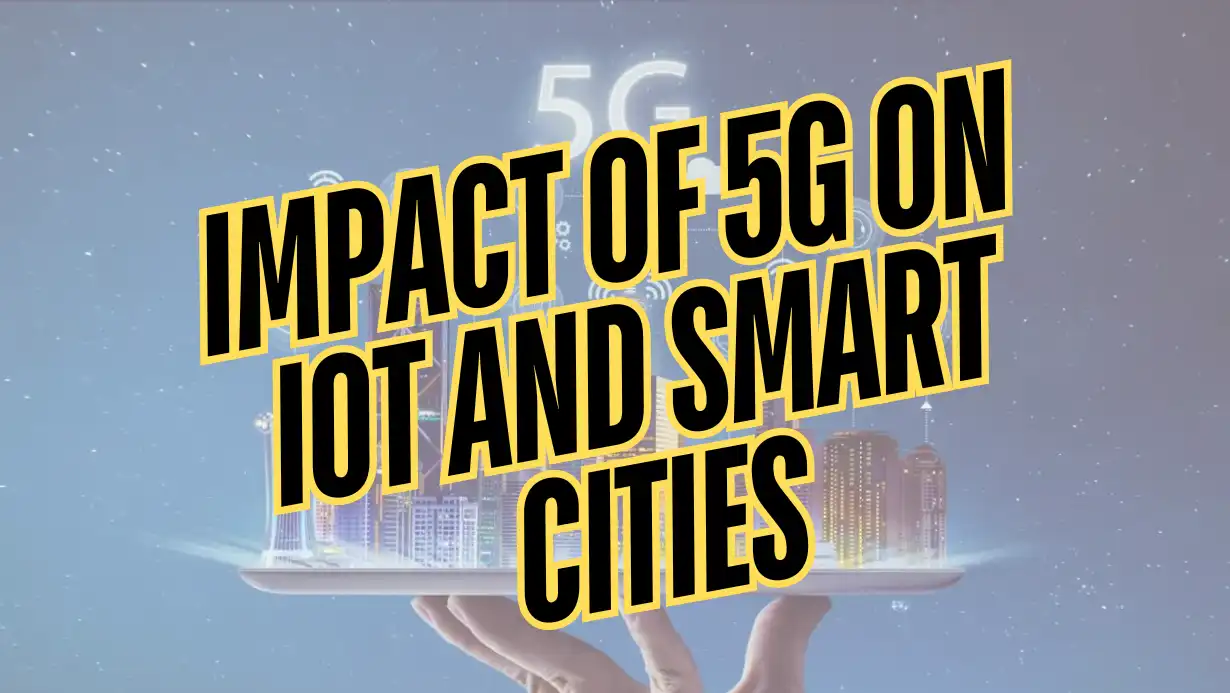The advent of 5G technology marks a significant milestone in the evolution of mobile networks, offering unprecedented speeds, lower latency, and enhanced connectivity.
As we move into 2024, the impact of 5G on the Internet of Things (IoT) and smart cities is becoming increasingly apparent.
This article explores how 5G is revolutionizing IoT and transforming urban living through smart city initiatives.
Understanding 5G Technology
- High-Speed Connectivity: 5G networks offer download speeds up to 100 times faster than 4G, enabling rapid data transfer and improved user experiences.
- Low Latency: The reduced latency of 5G (as low as 1 millisecond) allows for near-instantaneous communication between devices, critical for real-time applications.
- Increased Capacity: 5G supports a significantly higher number of connected devices per square kilometer, facilitating the proliferation of IoT devices and sensors.
Enhancing IoT with 5G
- Seamless Device Communication: 5G enhances IoT by providing reliable and high-speed connectivity for a vast number of devices, enabling seamless communication and data exchange.
- Real-Time Data Processing: The low latency of 5G allows for real-time processing of data from IoT sensors and devices, improving the responsiveness and efficiency of applications.
- Increased Reliability: 5G networks offer improved reliability and coverage, ensuring consistent performance for critical IoT applications in various environments.
Transforming Smart Cities with 5G
- Smart Infrastructure: 5G enables the deployment of advanced smart infrastructure, such as connected streetlights, traffic management systems, and smart parking solutions, enhancing urban efficiency and sustainability.
- Enhanced Public Services: The integration of 5G with smart city services, such as public safety and emergency response systems, allows for faster and more effective management of public resources and services.
- Improved Transportation: 5G supports the development of intelligent transportation systems, including autonomous vehicles, real-time traffic monitoring, and dynamic route optimization, leading to smoother and safer urban mobility.
Advancing Healthcare through 5G
- Telemedicine: 5G enhances telemedicine by enabling high-quality video consultations and remote monitoring of patients, improving access to healthcare services.
- Remote Surgery: The low latency and high bandwidth of 5G support remote surgical procedures and real-time collaboration between surgeons and specialists, expanding access to advanced medical care.
Supporting Energy Management
- Smart Grids: 5G facilitates the deployment of smart grids that monitor and manage energy distribution in real-time, optimizing energy use and reducing waste.
- Renewable Energy Integration: The enhanced connectivity of 5G supports the integration of renewable energy sources and improves the efficiency of energy management systems.
Enhancing Environmental Monitoring
- Air Quality Monitoring: 5G enables the deployment of advanced air quality sensors that provide real-time data on pollution levels, helping cities address environmental challenges.
- Waste Management: Smart waste management systems powered by 5G sensors can monitor waste levels and optimize collection routes, reducing operational costs and environmental impact.
Addressing Privacy and Security Concerns
- Data Protection: As 5G enables more extensive data collection and connectivity, it is crucial to implement robust security measures to protect sensitive information and ensure the privacy of users.
- Network Security: Strengthening network security protocols and encryption methods is essential to safeguard against potential vulnerabilities and cyber threats associated with 5G technology.
Future Outlook
- Continued Innovation: The ongoing development of 5G technology and its integration with emerging technologies, such as AI and edge computing, will drive further innovations in IoT and smart cities.
- Global Adoption: As 5G networks expand globally, cities around the world will increasingly leverage the technology to enhance urban living and address complex challenges.
Conclusion
The deployment of 5G technology is set to revolutionize the Internet of Things and smart cities, offering enhanced connectivity, real-time data processing, and improved efficiency. By leveraging the capabilities of 5G, urban areas can transform into more intelligent, responsive, and sustainable environments. As 5G continues to evolve, its impact on IoT and smart city initiatives will shape the future of urban living, driving innovation and improving quality of life for residents.
